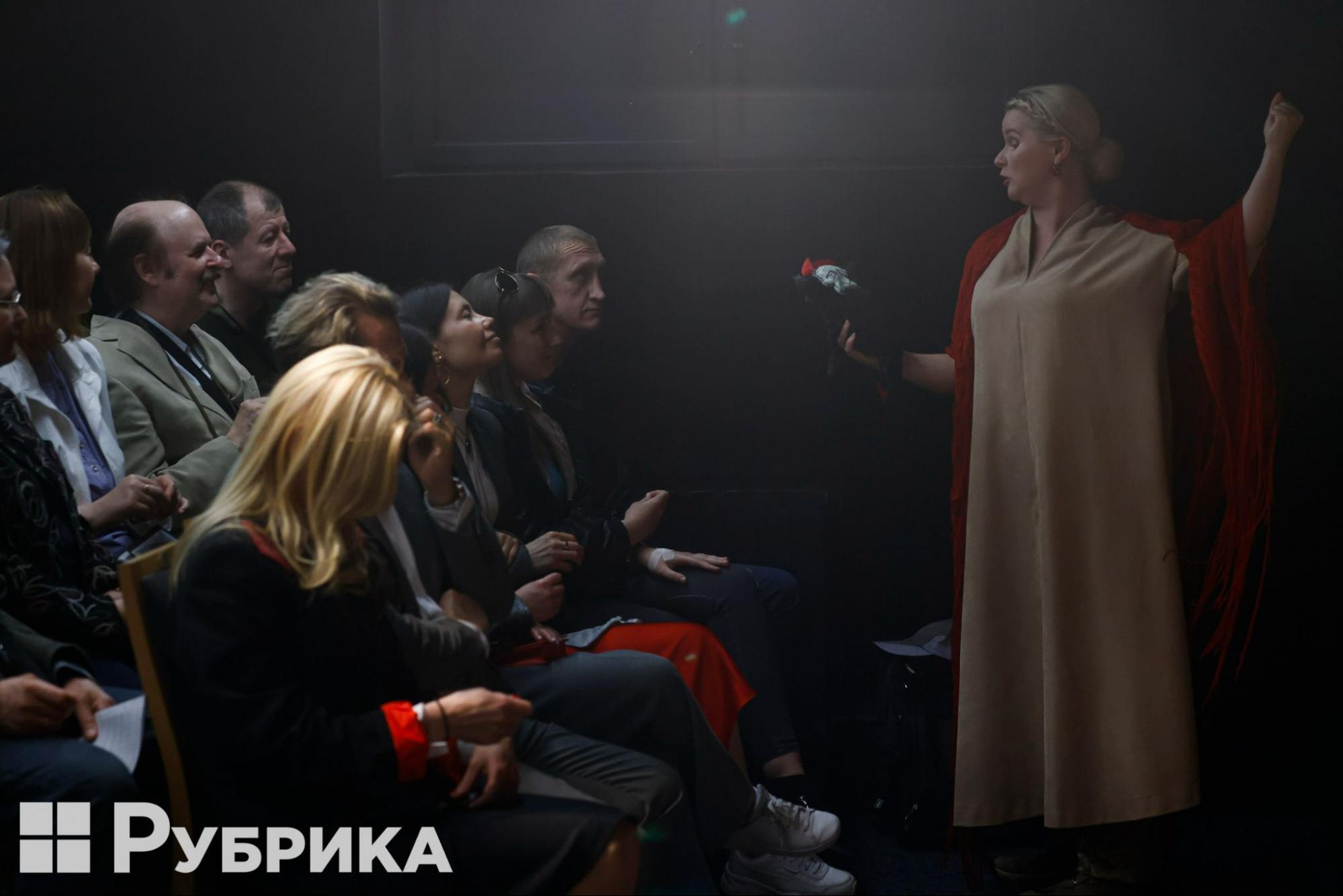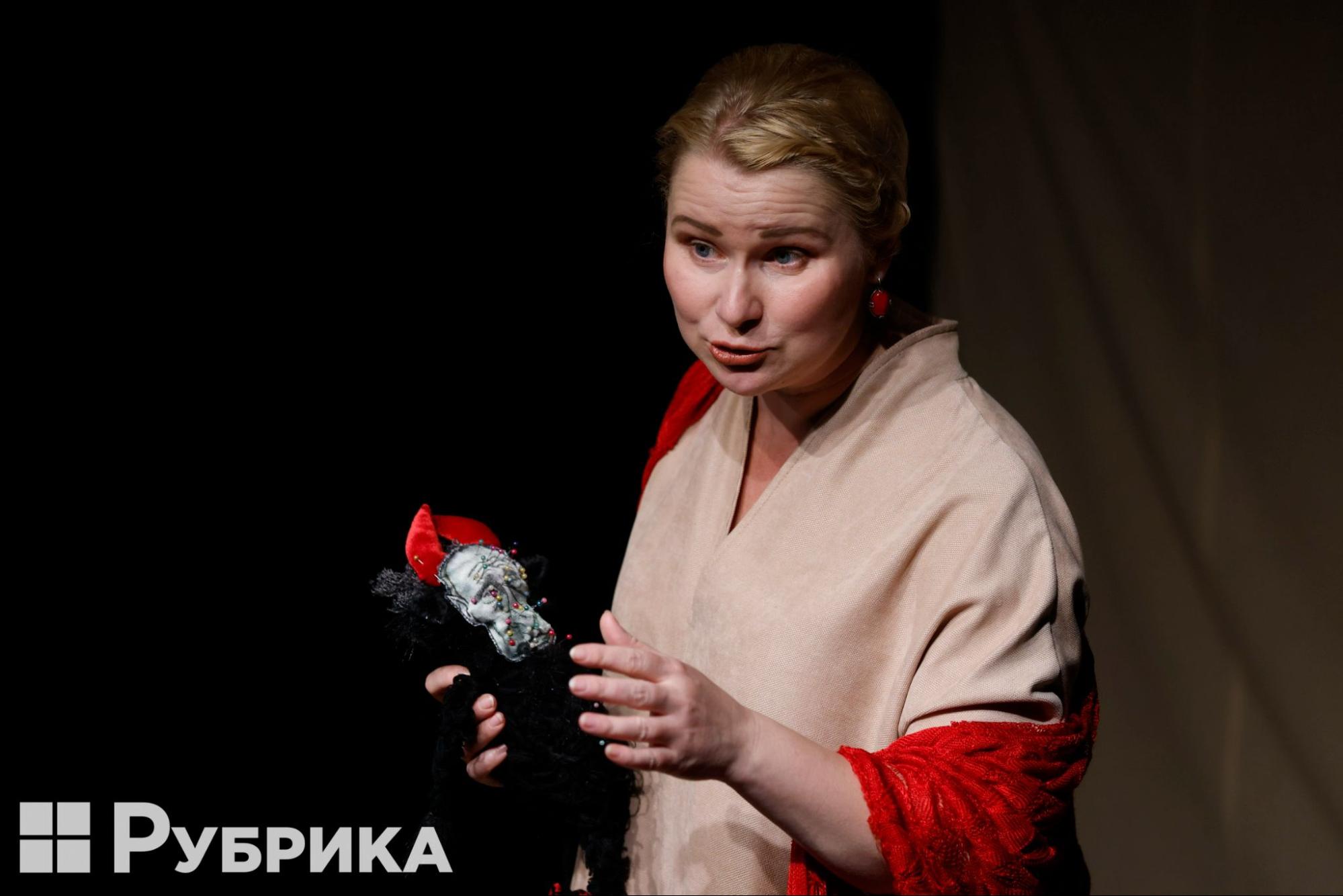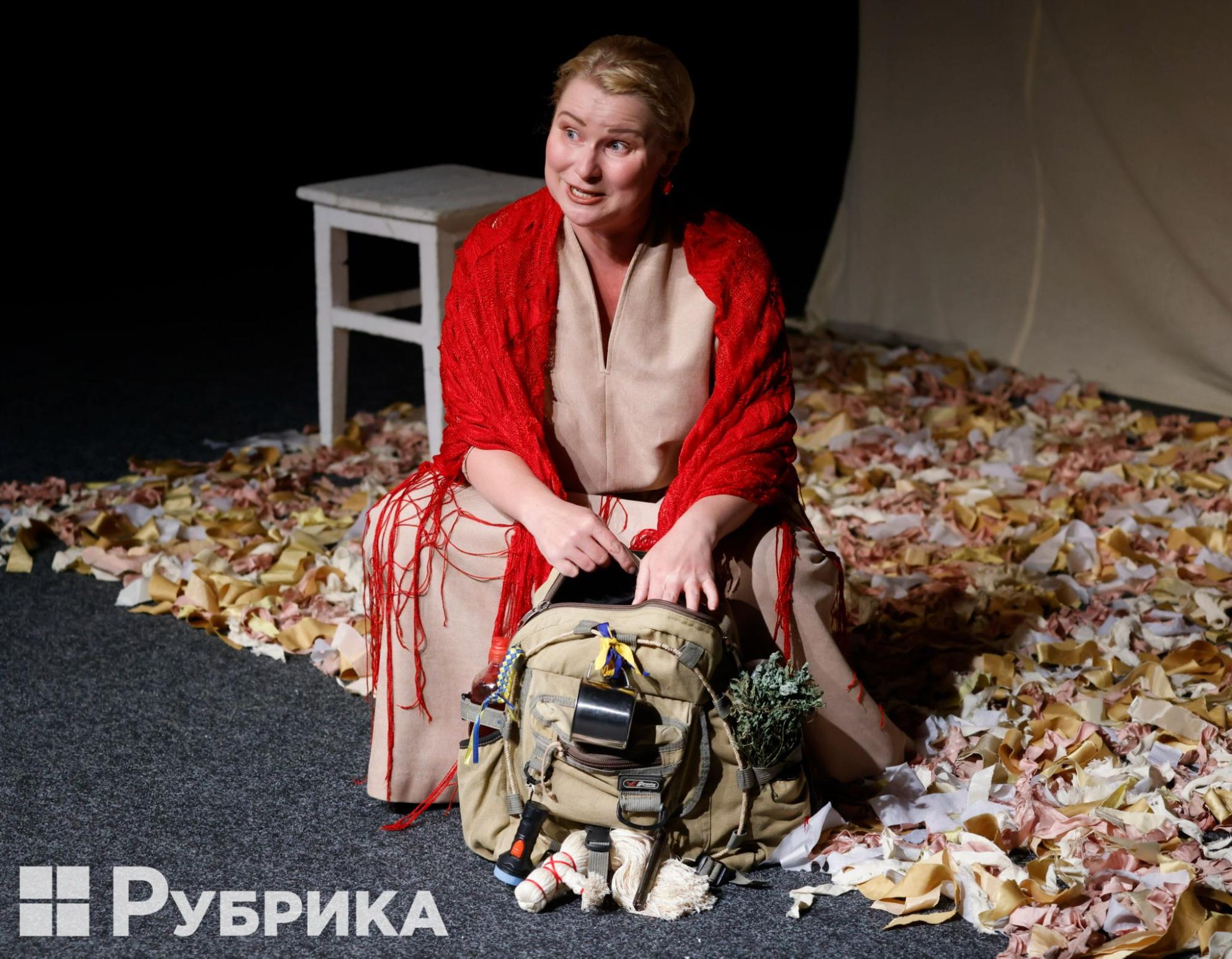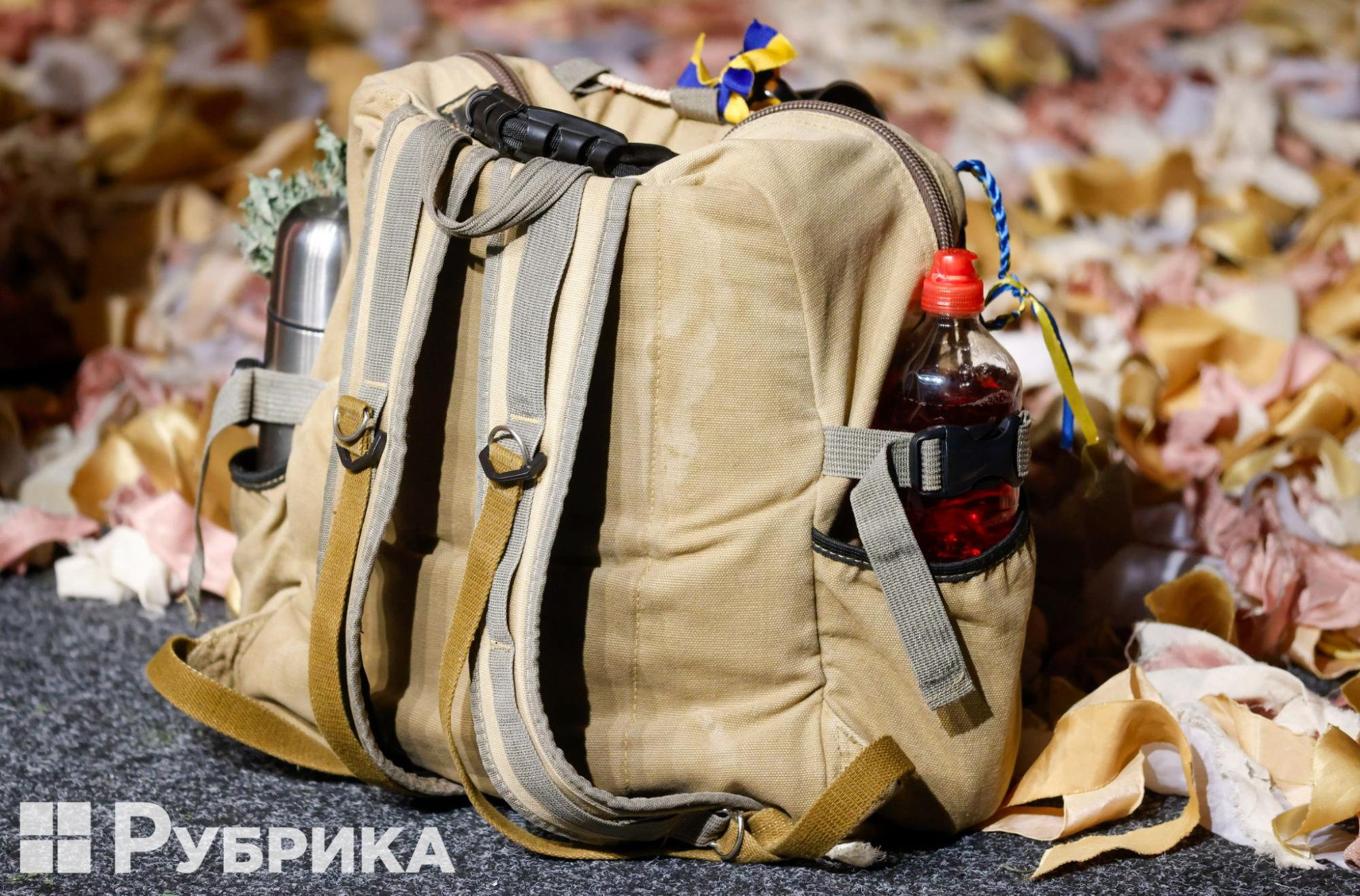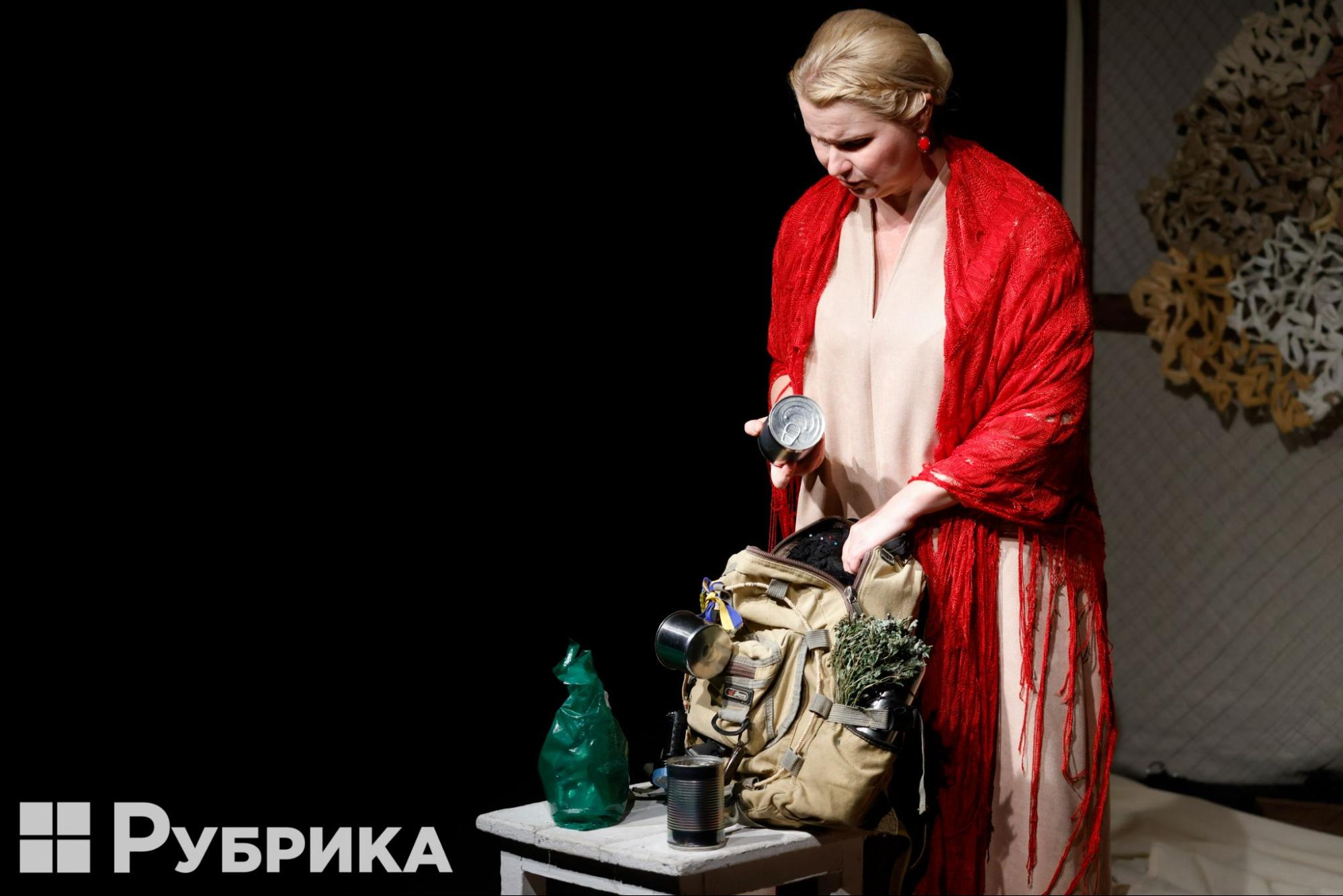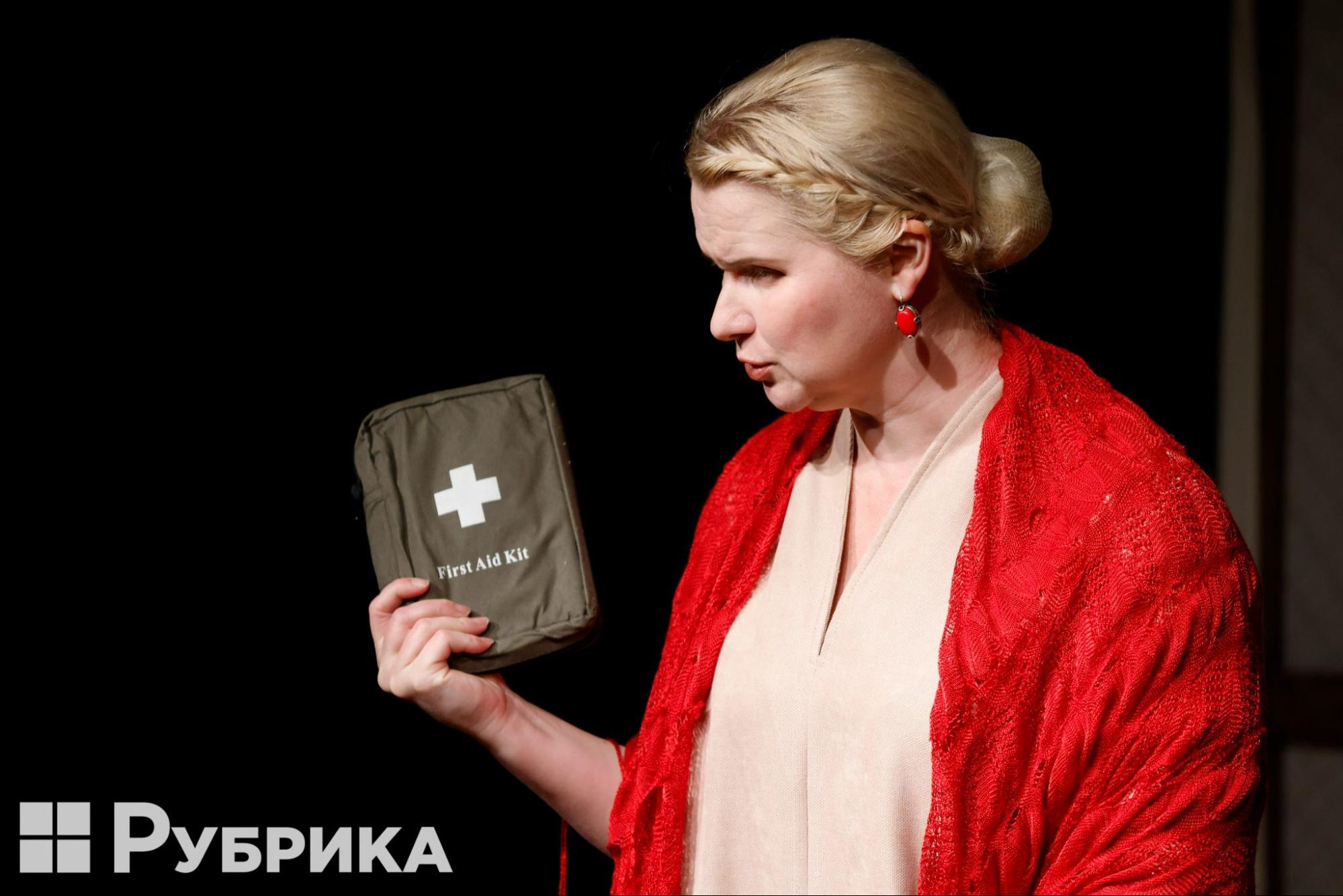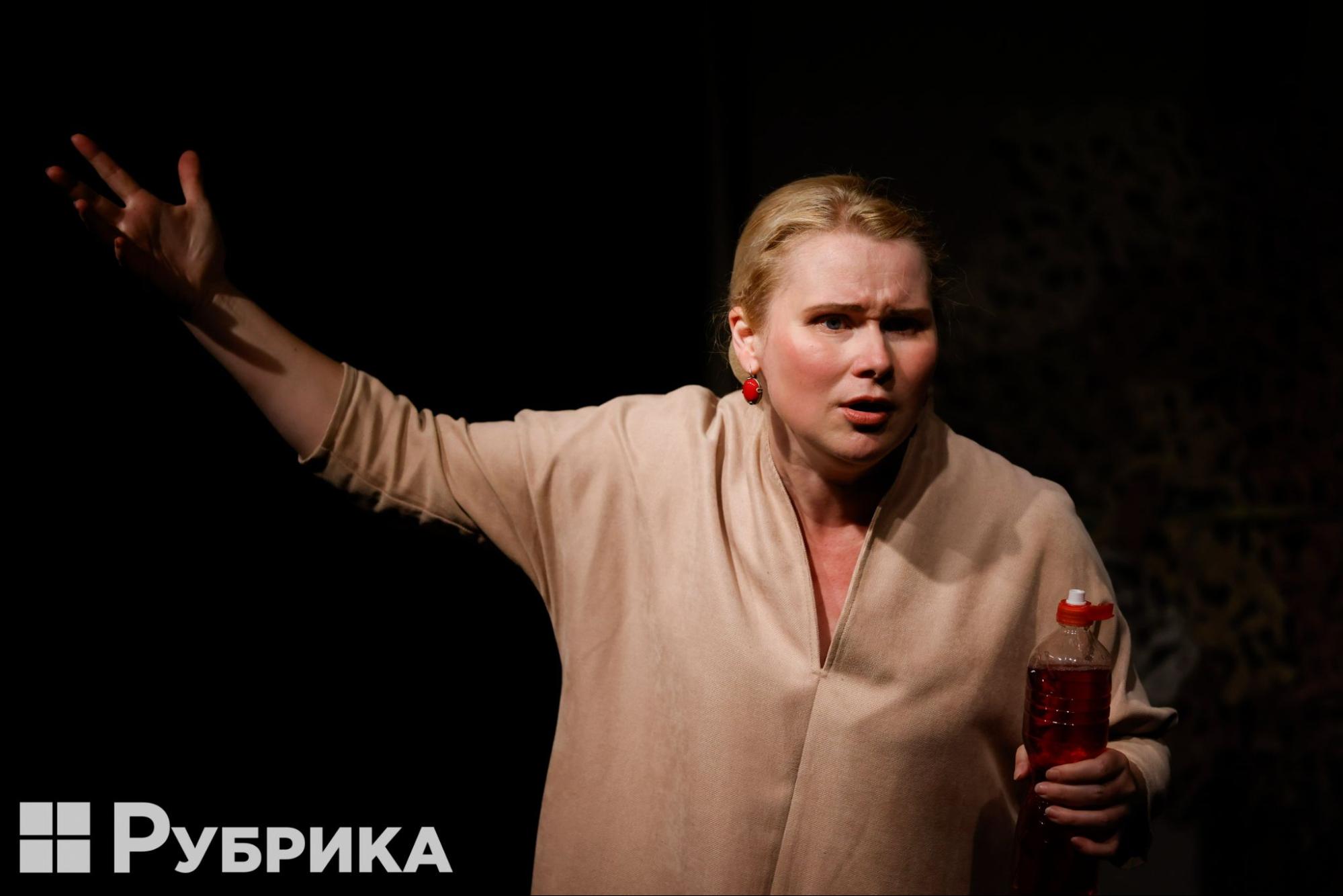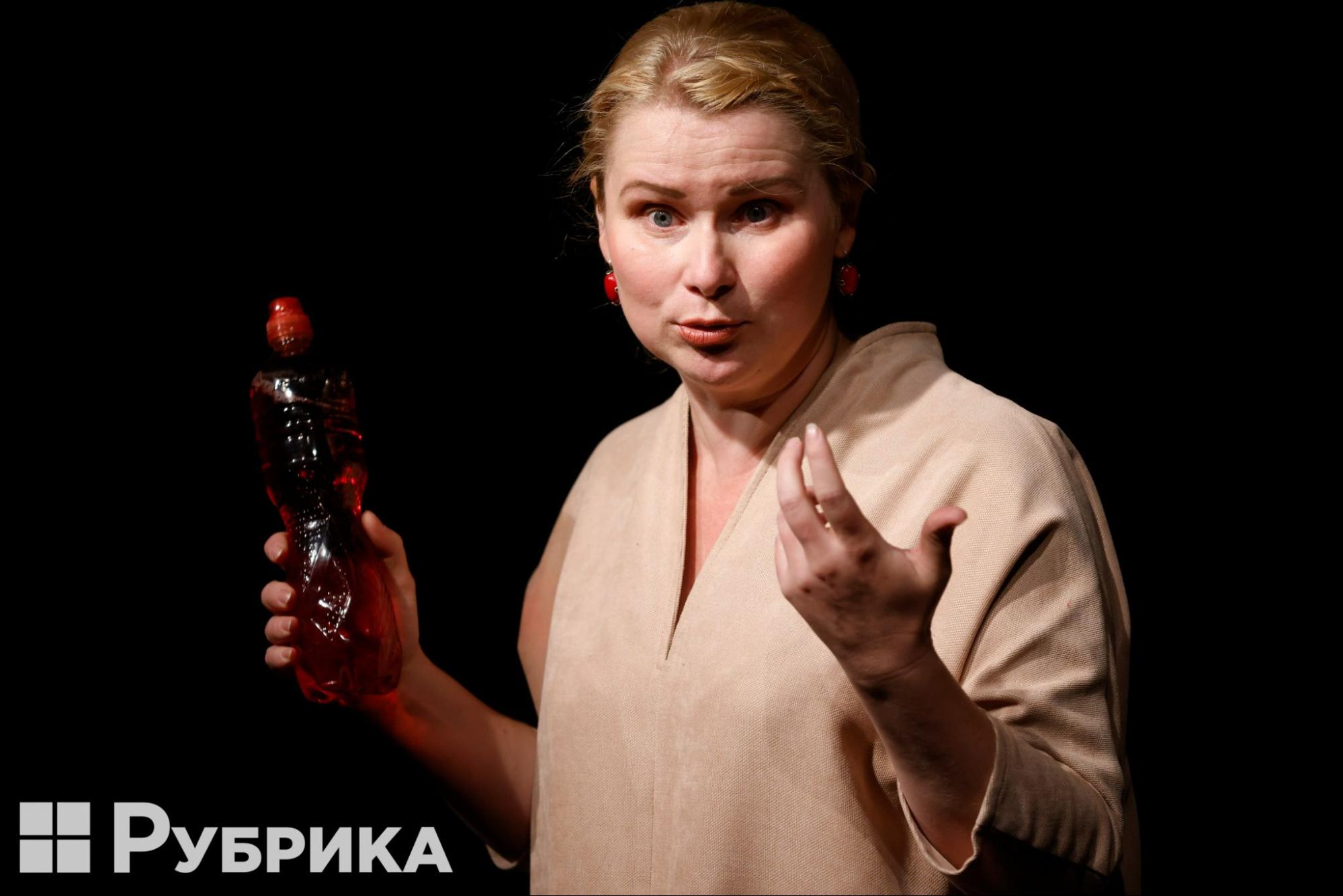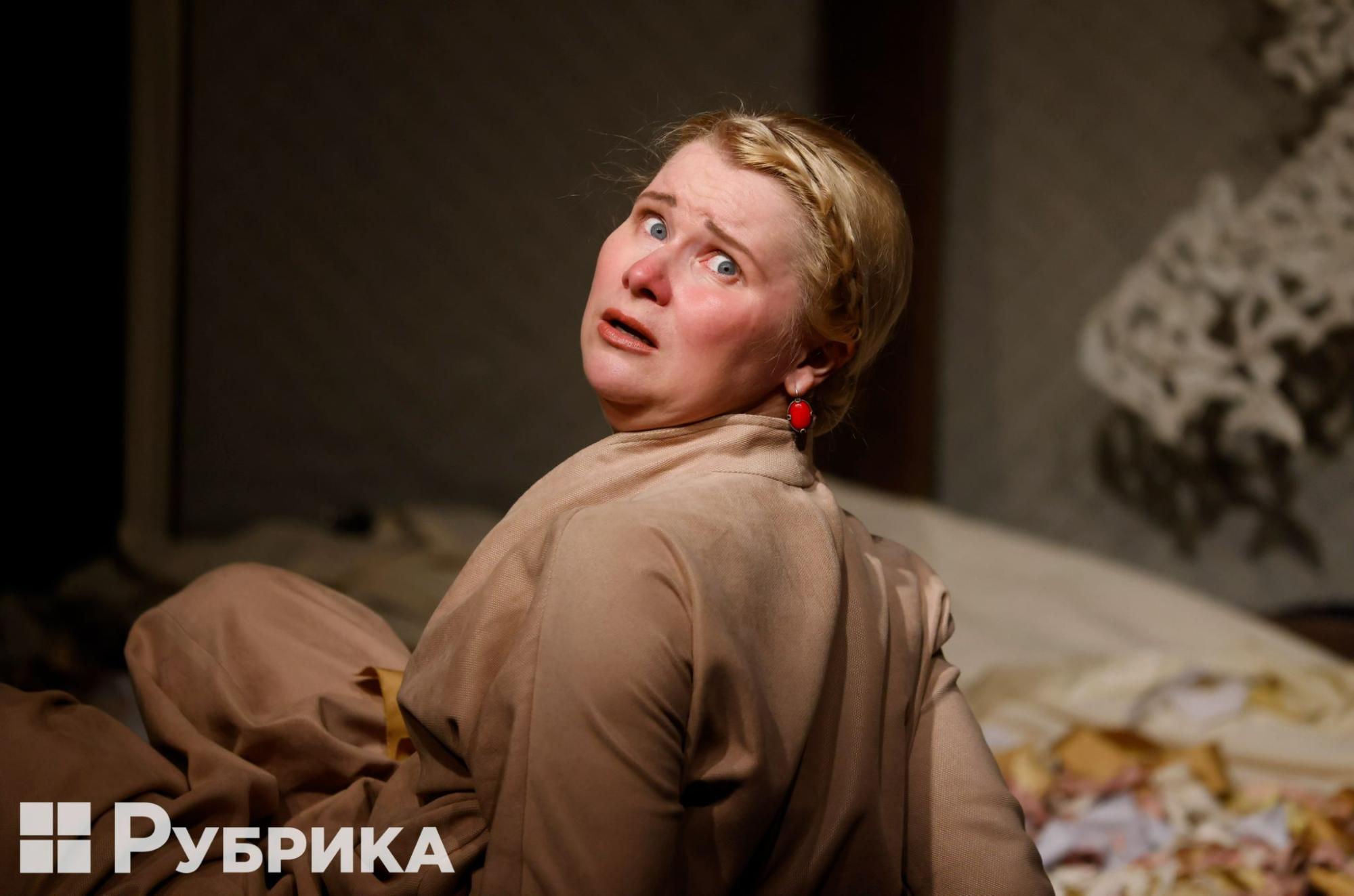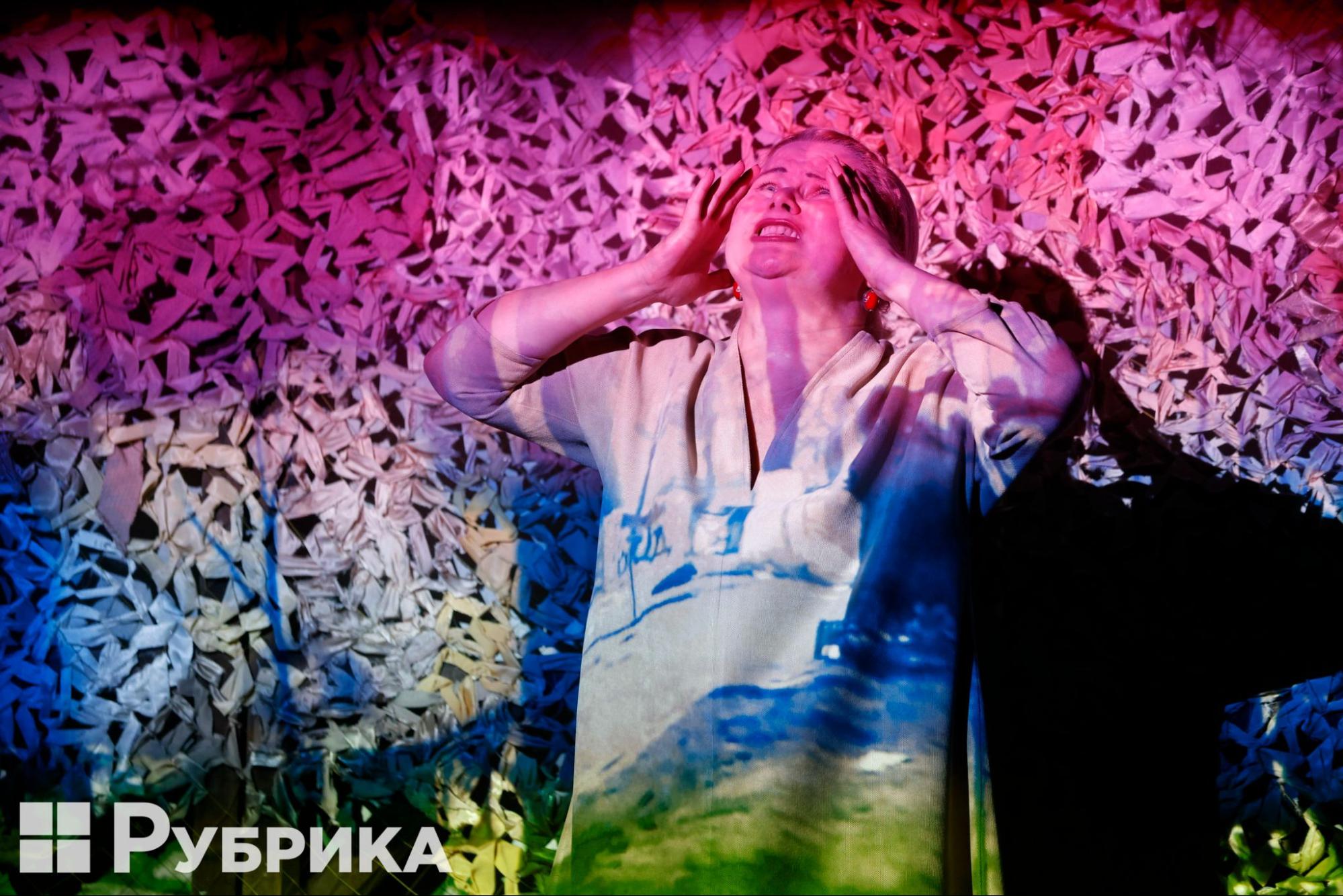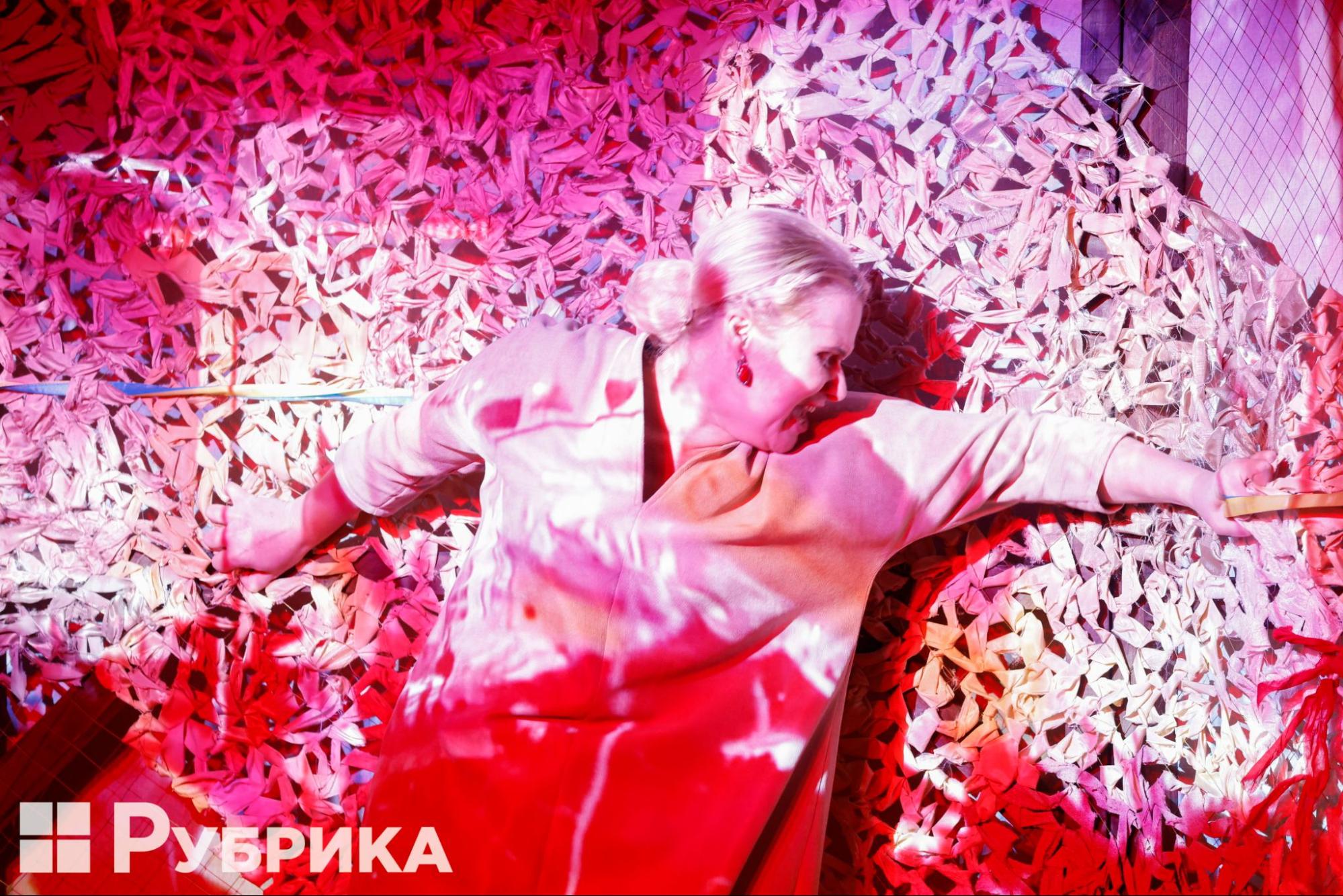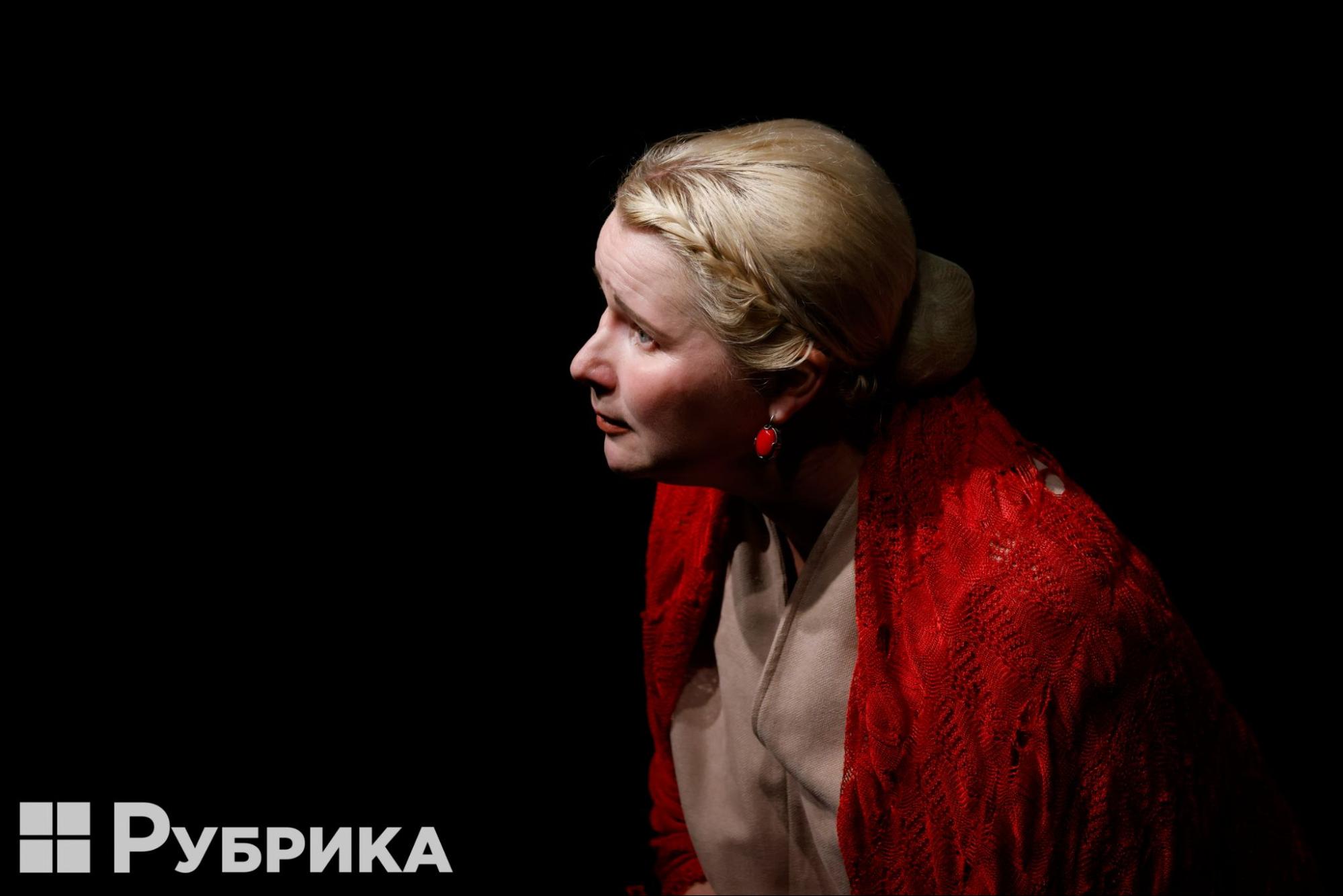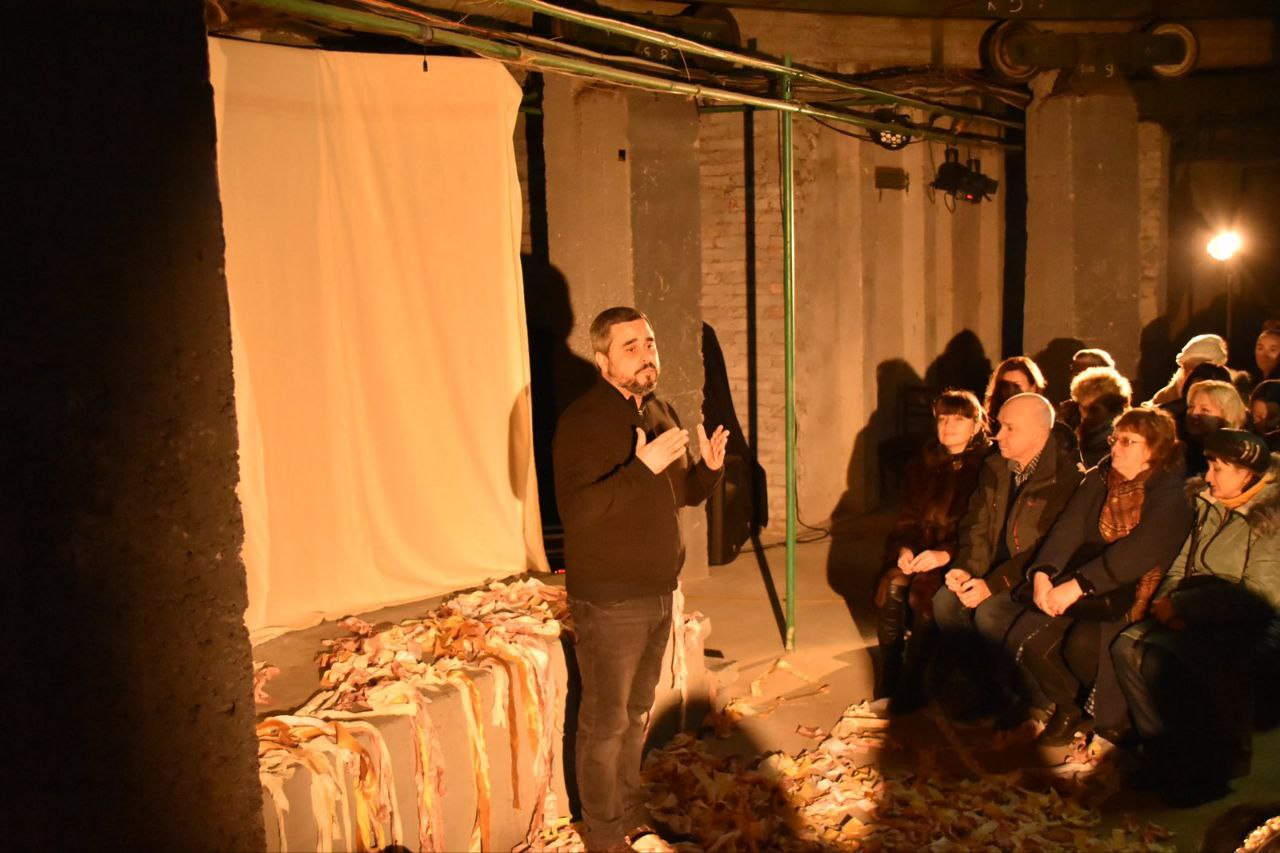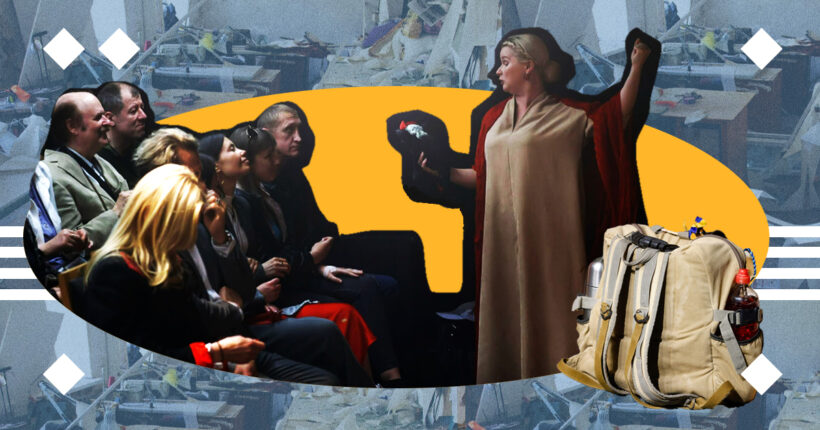
What is the problem?
Mykolaiv was a front-line city for a long time, suffering daily from Russian shelling. The city center, including the well-known ruined building of the regional administration and the Mykolaiv Academic Art Drama Theater, was particularly affected.
The theater itself was hit by Russian rockets. In September 2022, an S-300 missile struck the theater's grounds, destroying the landscaped square and cast-iron sculptures outside and damaging windows, offices, dressing rooms, the sewing workshop, the museum, and the small stage inside.
Performing on the stage was impossible in these conditions, so the theater had to halt its usual shows.
"On February 24, all the theaters in our country were shaken by terrible news. We couldn't believe what was happening. Our men joined the armed forces, and women started volunteering," Artem Svystun, the theater's director, recalls the first day of Russia's large-scale invasion. "A small group of our actors stayed in Mykolaiv. We tried to keep working despite constant shelling and lack of water and electricity."
What is the solution?
Despite the difficult situation in the city, the theater adapted but did not stop working after the full-scale invasion began. Those who stayed in Mykolaiv immediately started volunteering, making balaclavas, raincoats, and flags.
By March 2022, the theater began putting on traveling shows in centers housing displaced people. They also performed for soldiers before they went to the front.
"The theater continued its work as humanitarian art therapy. We kept working for displaced people, those who stayed in the city, and for the men and women in the Armed Forces of Ukraine," says Artem Svystun.

Near a volunteer hub in one of the front-line villages where the Mykolaiv actress performed a play in 2023. Photo from Maryna Vasylieva's personal archive
By the summer of 2022, the theater had converted its basement into a new auditorium. Even though the stage was just two by four meters and the hall could hold 40 people, this solution allowed the team to return to their theater and support the people of the front-line city with their work.
"Art is an incredible support for people. People appreciate it when actors perform as if they're on a big stage, even in such difficult conditions. I knew this, and it was essential for me not to leave but to stay and work as an actress," says the theater's leading actor, Maryna Vasylieva.
When they could perform in their theater again, the director decided to create new shows. One of the first premieres was the one-woman show "Simple Ukrainian Scythian Baba," based on the novel "Daughter" by Shevchenko National Prize winner Tamara Horikha Zernia.
Work on the show began in late August 2022. The theater director suggested Maryna Vasylieva take on the project. She became the author of the adaptation and the performer of the one-woman show, with director Artem Svystun leading the production.
"It's a unique situation where, during the war, in a front-line city, with constant air raid alarms and shelling, a stage provides safe conditions for audiences and actors. We realized this stage needed special material that speaks to today's audience," says Maryna Vasylieva.

Premiere of the one-woman show in Mykolaiv on October 14, 2022. Photo: Suspilne Mykolaiv
The theater had just two weeks to finish the show, as they wanted to participate in the "Monologues over Uzh" one-woman show festival in the western city of Uzhhorod. Maryna Vasylieva managed to write the play in such a short time and eventually won the grand prize at the festival.
The constant air raid alarms and shelling were the main obstacles to finishing the play. The actress often learned her lines at night, hiding from the shelling in the hallway of her apartment. The Mykolaiv premiere was almost canceled due to a strike on the theater grounds on September 22. Despite this, the show went on as planned on October 13-14 to celebrate Ukrainian Defenders Day.
"When the theater was shelled, there was a book 'Daughter' on the windowsill in my office. That's when I knew that the terrorism happening in Ukraine wouldn't break us. We made the show. The novel's author even came to see it despite the shelling," says Artem Svystun.
How does it work?
The play begins with the sound of an air raid warning. Maryna Vasylieva, the actress, says that every time she hears the siren, she treats it as her cue to go on stage. She steps onto the stage as if entering a shelter.
Entering the "basement," the woman finds a spot, sits down, and starts talking to the audience — they become her neighbors. She talks to them about everyday life and the war. To lighten the mood, she suggests remembering the culprits of these events and symbolically stabbing the "main devil" with a needle.
To the sound of explosions, the heroine of the play also talks about herself and how she ended up where she is now. Before 2014, she lived in Donetsk, a Russian-occupied city in Ukraine's east. She participated in protests in her city's square and fought for her country's future when Russia started the Donbas war. However, history was not on her side — Russia occupied the town — and she had to leave her home.
The heroine's complicated past is symbolized by the backpack on her shoulders. She learned to pack her entire life into it, only taking what was truly necessary.
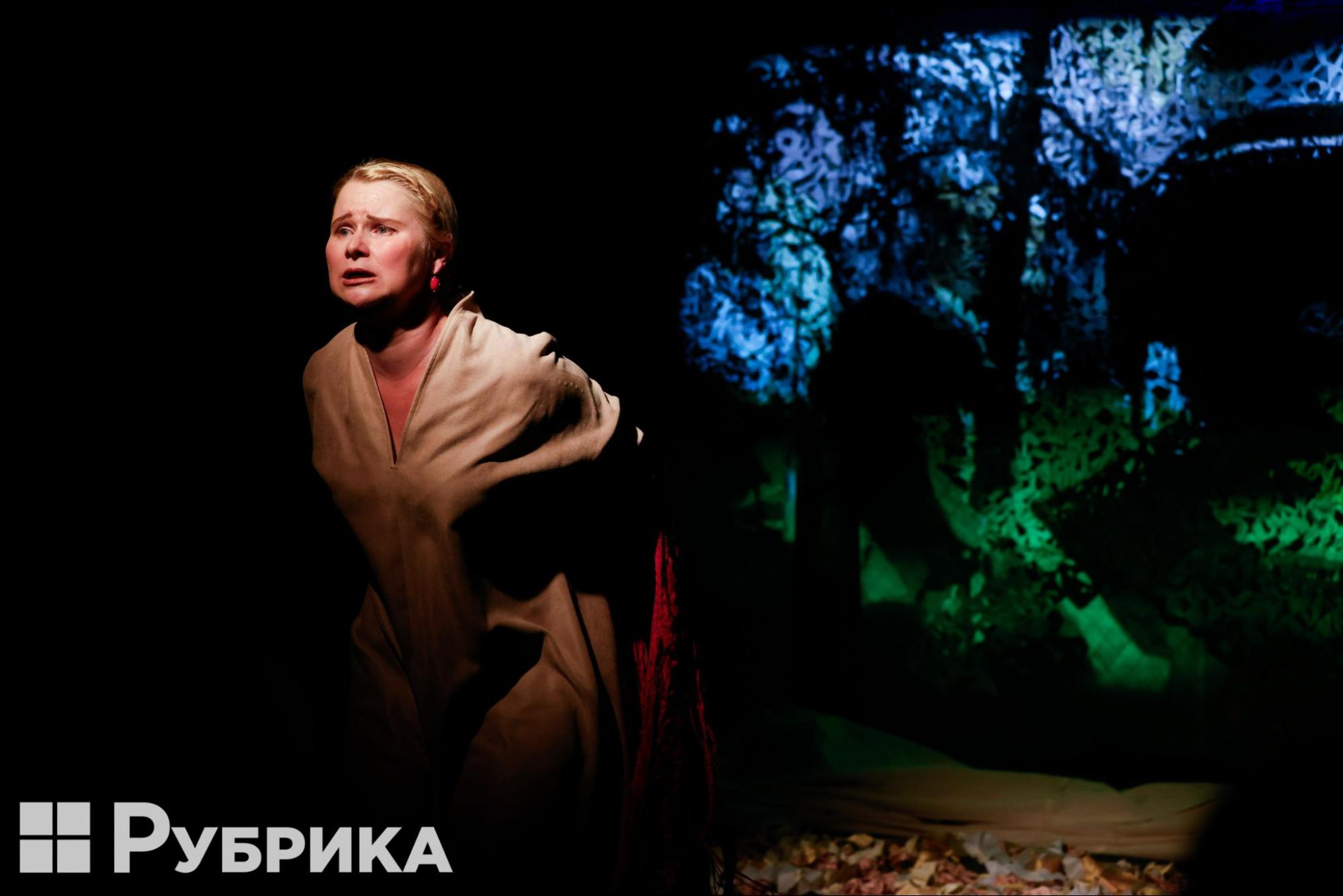
The theater director says that the actress doesn't just play the role. Maryna Vasylieva is from Luhansk, another eastern city that Russia occupied in 2014, and knows what it's like to lose her home. She has visited the war zone many times as an art volunteer.
"She doesn't act the play; she lives it on stage. For her, each performance is a pain she relives with the audience," says Artem Svystun.
The actress says that she wasn't sure if people would want to hear about the war during wartime, let alone watch such a tragic story. Artem Svystun convinced her that it was necessary, and he was right — the show was sold out.
"In the first few months, we had complete sell-outs. People stood in the corridors with flowers because there was no room left in the hall even to stand," Maryna Vasylieva shares.
The actress explains the sell-outs as art therapy for the audience. Each performance evokes many emotions, with most people crying, which helps the audience cope with the war.
After the show, people usually don't want to leave and let Maryna Vasylieva go. The audience surrounds her near the stage to thank and hug her.
Some believed so strongly in the "neighborhood" that they started sharing their life stories with the actress. Someone talked about their husband, who died at the front. Another woman spoke about her son, who recently joined the Armed Forces of Ukraine. Some mentioned missing friends with whom they suddenly lost contact.
"Our creative team — me, our director, our sound and light technicians, and our audience — felt like a big family going through the great sorrow of the war together," says Maryna Vasylieva.
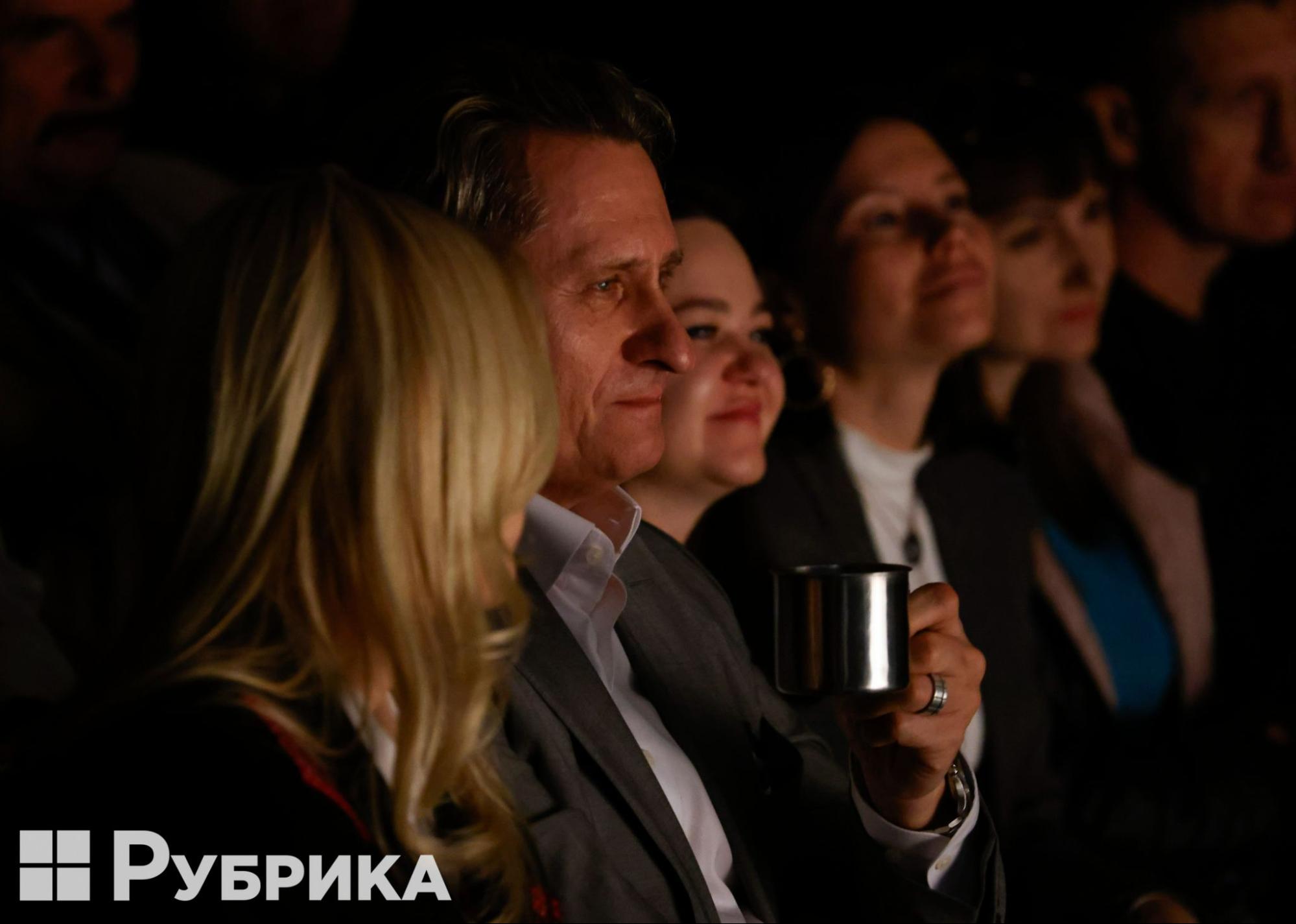
The show received such an open reaction from the audience not only in front-line Mykolaiv but also in other cities where it was performed. Since September 2022, the team has shown "Simple Ukrainian Scythian Baba" in Lviv, Odesa, Uzhhorod, Kropyvnytskyi, Mukachevo, and Khmelnytskyi. In Kyiv, they recently performed the 39th and 40th shows.
The actress was surprised by the response. She thought the show would be received differently across different parts of Ukraine. Maryna Vasylieva expected different demands even in the neighboring city of Odesa but was proven wrong.
"The audience everywhere quickly connects, opens up their hearts, and talks sincerely about the war. They are ready to reflect and cry about it. This shows that art greatly unites us," says Maryna Vasylieva.
The director adds that the play helps bridge the gap between the experiences of people who've lived in front-line Mykolaiv or occupied Kherson and those not as close to the war. According to him, people left the theater with a better understanding of what happened in their region.
Having toured Ukraine, the team is now preparing for performances abroad. Negotiations are underway to show the play in several European countries. The audience will include both Ukrainian refugees and locals. The main goal is to remind everyone that the war is ongoing and how it began.
"Our mission, our ultimate goal, is to show Europe what will happen if this invasion isn't stopped. If this horde takes over Ukraine, it will move further. And if we don't come together as a civilized world and stop this invasion, it could have further consequences," says the director.
Newsletter
Digest of the most interesting news: just about the main thing










